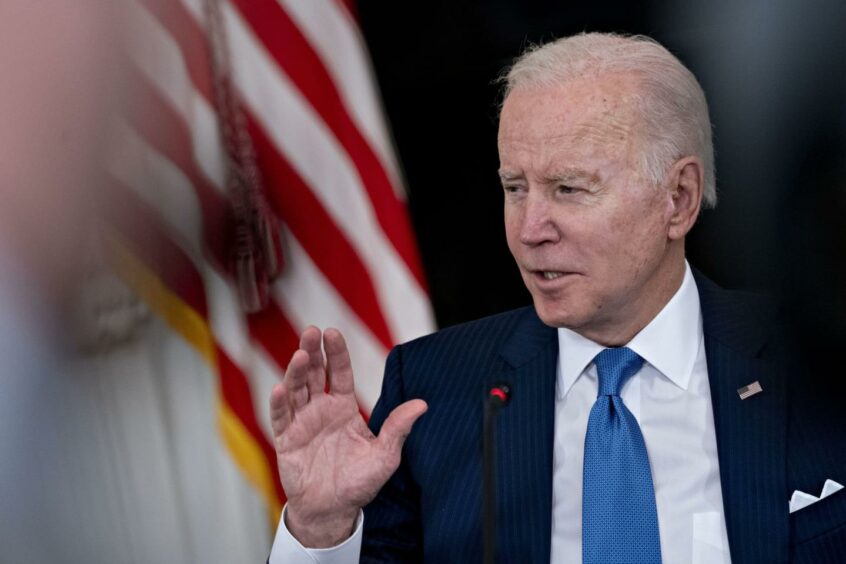
President Joe Biden spoke on Wednesday with King Salman of Saudi Arabia about ensuring stable energy prices as well as Mideast security, in light of recent attacks by Yemeni rebels, and the status of talks over Tehran’s nuclear program.
Amid a broad surge in global energy prices in recent weeks, the two leaders “reiterated the United States’ and Saudi Arabia’s commitment to ensuring the stability of global energy supplies,” according to a White House statement.
A Saudi press release echoed that theme, saying the king “stressed the importance of maintaining balance and stability in the oil markets” and citing a recent OPEC+ agreement as evidence of that concern.
Beyond energy, much of the call appeared to focus on bolstering the US-Saudi defence partnership following a spate of attacks coming from Houthi rebels in Yemen.
“The president underscored the US commitment to support Saudi Arabia in the defence of its people and territory from these attacks and full support for UN-led efforts to end the war in Yemen,” according to the White House statement.
Jets to UAE
A Saudi-led coalition has been battling the Houthi rebels since 2015. The conflict, which has pushed the Yemeni population to the brink of famine, threatens to widen beyond Yemen’s borders, most recently when the Houthis attacked the United Arab Emirates with drones and missiles.
The US plans to deploy a squadron of Lockheed Martin Corp.’s F-22 jets in addition to moving a guided-missile destroyer to assist the UAE, a member of the coalition, in fending off new assaults.
The Houthis are supported by Iran, and the official Saudi press agency said that Salman also “cited the kingdom’s support to efforts by the United States to prevent Iran from obtaining nuclear weapons, and stressed the need to work together to counter the destabilising activities of Iran’s proxies in the region.”
Biden, the White House added, also “noted his commitment to ensuring that Iran can never obtain a nuclear weapon and briefed the king on ongoing multilateral talks to re-establish constraints on Iran’s nuclear program.”
While the Saudis enjoyed close ties with the Trump administration, Biden’s White House, although affirming the US alliance with the kingdom, has largely steered clear of the king’s son, Crown Prince Mohammed Bin Salman. The CIA concluded in a report made public in February that Prince Mohammed — seen as the country’s de facto ruler — likely approved the 2018 killing of Washington Post columnist and Saudi critic Jamal Khashoggi at the kingdom’s consulate in Istanbul.
Saudi officials have repeatedly rejected that accusation.